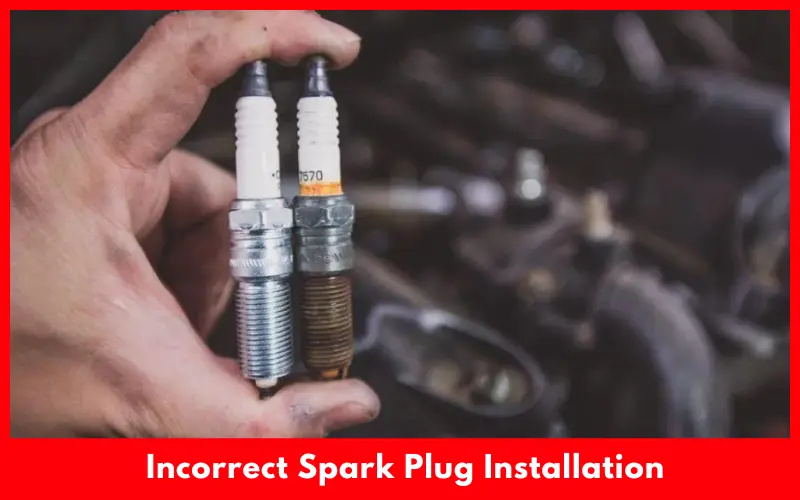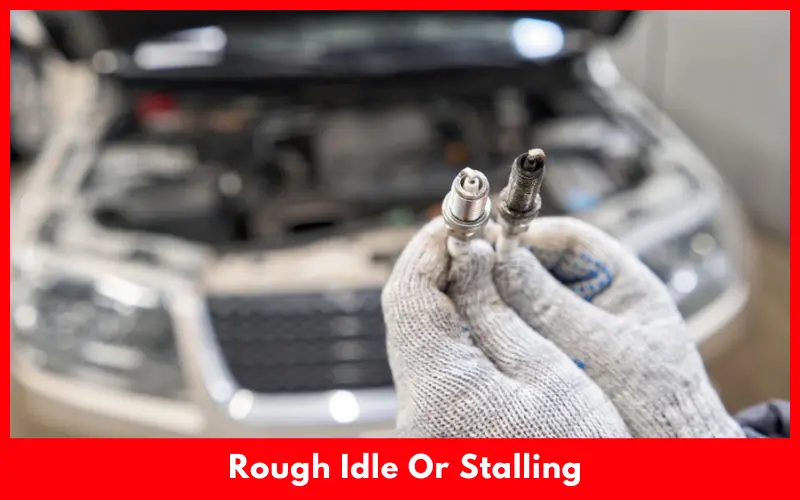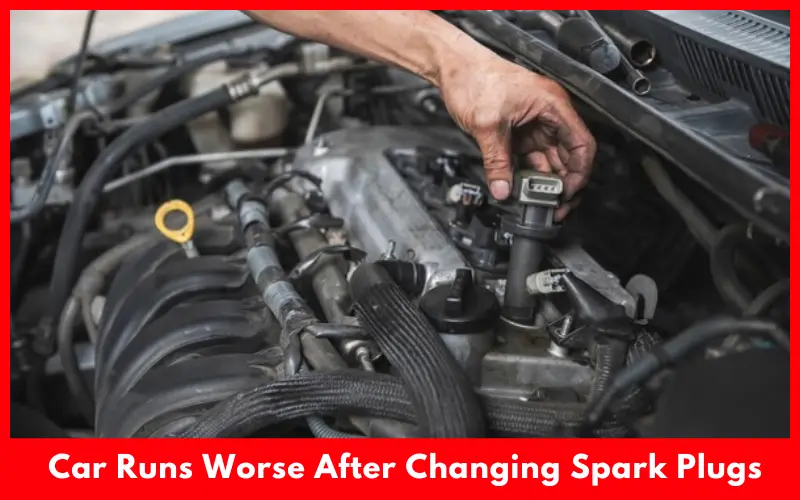Are you frustrated after changing the spark plugs in your car? It seems to run worse rather than better? It’s the scenario that many of us experience, prompting a perplexed look on our faces and leaving us wondering what went wrong.
We will examine various reasons why do car runs worse after changing spark plugs. There are some tips on how to correct these issues after changing spark plugs.
Article Summary
Reasons Of Car Runs Worse After Changing Spark Plugs
One of the reasons is that the new spark plugs may not be compatible with the timing or the type of ignition system on your car. After replacing spark plugs, when you come across any problems, one should debug to maintain the car’s excellent performance and reliability.
Incorrect Spark Plug Installation
One of the chief reasons which may result in a vehicle not running well after the spark plug replacement is a mistake during the installation.
Poor installation or incorrect sealing of the spark plugs can also cause the engine to misfire or underperform greatly. Make sure that spark plugs are installed properly and firmly connected.

Faulty Spark Plugs
Your vehicle will never operate correctly if you have replaced your spark plugs with poor quality and incompatible ones. Faulty spark plugs fail to create enough spark to ignite the air-fuel mixture effectively. Always use spark plugs that are recommended by your car’s manufacturer. You must double-check to ensure that you are using the correct type and heat range.
Ignition System Issues
On other occasions, the issue might not be the spark plugs per se but it may be other parts that comprise the ignitions system. A defective crankshaft position sensor, faulty ignition coils, ignition wires, or defunct distributor can all inflict poor engine performance even if the spark plugs are new.
Complete a comprehensive inspection of all the ignition systems components in order to spot possible problems.
Vacuum Leaks
A vacuum leak creates an unwanted gap or hole within the intake manifold of the engine that allows the undirected air to voluntarily enter the intake manifold. It could be the following: incorrect air-fuel ratio, and make engine rough idle, hesitate or accelerate slowly.
Engine Timing
A wrong ignition timing can be accompanied by poor engine performance and also the engine damage. If your car engine timing belt or timing chain is not maintained properly, it can disrupt the normal timing of the ignition system, resulting in the occurrence of stutters and roughness.
Refer to the car’s manual or consult a professional mechanic to make sure that the timing of the engine is set properly.
Common Problems After Changing Spark Plugs
Rough Idle Or Stalling
The car might exhibit a rough idle and stall due to inappropriate installation, incorrect spark plug gap, and selection of an inadequate spark plug. Verify the correct installation of the spark plugs, torquing to the manufacturer’s specification, and checking the gap.

Misfiring
Misfire occurs where one or more hydraulic cylinders in your engine do not ignite properly. It may be due to a faltering consistent combustion, faulty spark plugs or an ignition system like ignition coils or wires. Run a diagnostic on the spark plug wires and ignition coils and replace them if required.
Decreased Fuel Efficiency
Less efficient fuel after replacing spark plugs may be a sign of problems including incorrect heat range and spark plugs of bad quality. Be absolutely certain that you are using spark plugs which conform to recommendations from the vehicle manufacturer and that they are the appropriate type and heat range for your engine.
Engine Knocking or Pinging
Engine knocking or pinging sounds, after the spark plug replacement, may be a sign of the premature ignition or detonation that can occur due to missing the proper spark timing or issues with the fuel being of poor octane rating. Tune the ignition timing and the fuel quality in order to avoid engine breakdown.
Check Engine Light
If the check engine light was turned on after changing the spark plugs that could mean misfires, oxygen sensor problems, or other engine related issues. By means of the OBD-II scanner, retrieve the error codes and diagnose the denial issue. Ensure that you take care of any problems to the extent that they cannot cause more damages to your car.
FAQs on Why Do Car Runs Worse After Changing Spark Plugs?
Why Has My Car Become Rough After Replacing Spark Plugs?
After changing spark plugs there are many possibilities why your car runs rough and it may be due to the following issues 1) improper installation, 2) wrong spark plugs, or 3) ignition system problem, 4) vacuum leaks or 5) fuel system problem.
Does The Wrong Type Of Spark Plugs Alter Performance At All?
In fact, inappropriate spark plugs are quite capable of generating problems in performance such as misfiring, rough idling and poor acceleration. It is imperative to use the spark plugs that your vehicle’s manufacturer recommends and are of the correct type as well as the heat range for your motor.
Do You Need To Retard The Engine’s Timing After Replacing Spark Plugs?
Sometimes, altering the engine timing can be required once the spark plugs are changed off, mainly if the timing belt or timing chain were removed or just disturbed when changing spark plugs. Refer to your car manual or hire a professional mechanic to make sure that the engine timing has been established correctly for the best engine performance.
Conclusion
There are a couple of reasons that your car could be running bleeding after installing new spark plugs. By paying attention to the whole ignition and fuel systems and trying to figure out the cause of the trouble, you can fix the underlying problem and make the car operate normally again.
If you have a doubt regarding spark plug replacement and engine troubleshooting, don’t hesitate to seek an expert mechanic before buying the engine parts. With sufficient cleanliness and care, you can continue to run your vehicle for a long distance.

